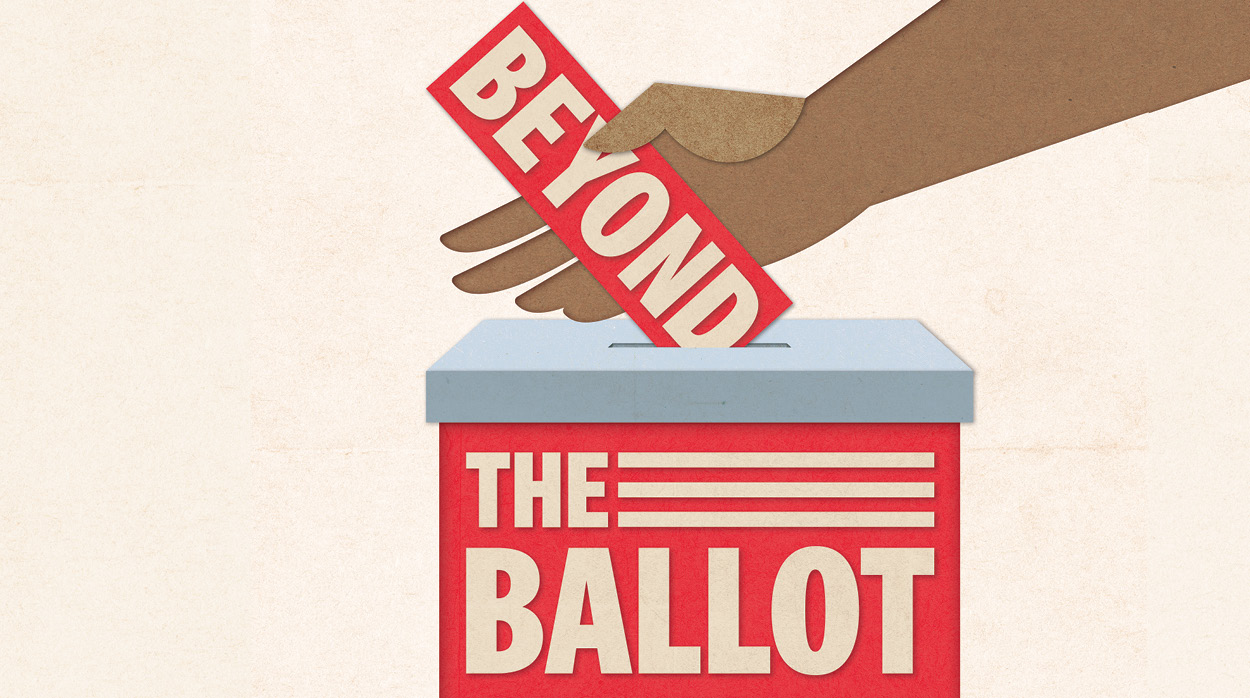CMU focuses on uniting campus through civic engagement
Politics on college campuses can be divisive, often mirroring what’s happening on a national level, especially during election years. With the introduction of the Mav the Vote Engagement Series, CMU flipped the script by uniting the campus community during the 2024 election cycle.
The series offered students and community members a fresh approach to civic engagement with a lineup of events designed to inspire civil discourse and boost voter participation. The series encouraged respectful dialogue through bipartisan debate watch parties, voter registration drives and forums that welcomed voices across the political spectrum to share their perspectives and ideas.
“At the end of the day, we only vote occasionally, but democracy and engagement are things you can participate in every single day,” said Assistant Professor of Political Science Holly Oberle, PhD, who oversaw several elements of the Mav the Vote Engagement Series alongside Professor of Political Science Tim Casey, PhD.
“We’re reminding people that democracy is about building community and discussing issues — even if you don’t always agree with your neighbors,” said Casey.
One series highlight was An Evening with Governors, a bipartisan panel discussion moderated by CMU President John Marshall. Former Colorado Governors Bill Owens (1999–2007, Republican) and Bill Ritter (2007–2011, Democrat) shared the stage to discuss the polarized political climate and a path to greater civil discourse. Their conversation demonstrated the potential for finding common ground, even in politically diverse spaces.
During the election season, CMU organized a field trip to the Mesa County Elections Office to provide deeper insights into the electoral process. Students toured the facility with Mesa County Clerk and Recorder Bobbie Gross, where she walked the attendees through the many safeguards that protect voting integrity, including 24-hour surveillance and precise ballot-handling procedures. The event attracted students from various majors and allowed attendees to see the human element behind the vote-counting process.
“It was incredible to see students from different disciplines participating and asking questions I wouldn’t have thought of,” said Oberle.
Thanks to Kyle Patten, CMU Political Science Club president, the series also highlighted the importance of cybersecurity during elections. Patten secured guest speakers Andrea Byrne and Kara Lamb from the Department of Homeland Security’s Cybersecurity and Infrastructure Security Agency (CISA) who informed attendees of the many ways that CISA supports states in safeguarding elections and offered students insight into potential cybersecurity career pathways.
Patten also assisted with coordinating voter registration drives and debate watch parties. Each event in the series was designed to encourage students to get involved and engage with fellow students, regardless of political leanings.
“I think student and community engagement in elections is important, and I wanted people to participate in the election regardless of who they voted for. Voting is the most important part of democracy, and students can’t be afraid to make their voices heard,” Patten said.
He was optimistic that the events in the Mav the Vote Engagement Series fostered an inclusive environment for political discussion and said that the series inspired him to continue making politics accessible to fellow students.
“I hope the series helped students know they have a community where they can talk about politics and related issues without being judged by their peers,” said Patten. “I’m now inspired to help make information about our political and democratic processes more easily available to students.”
The Mav the Vote Engagement Series helped foster a culture of informed and respectful political participation. With each event, CMU created opportunities for students to actively engage in the democratic process and build connections within the community. The series reflected CMU’s commitment to teach students how to think, not what to believe, ensuring students leave campus as informed citizens ready to take an active role in their communities well beyond their college years.
